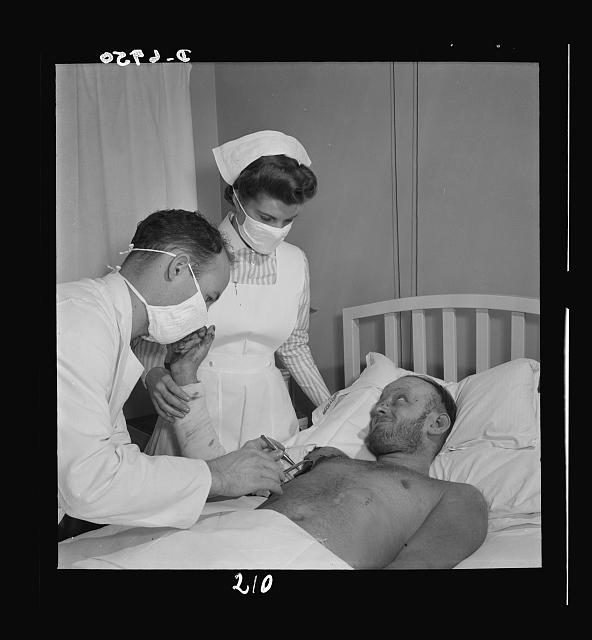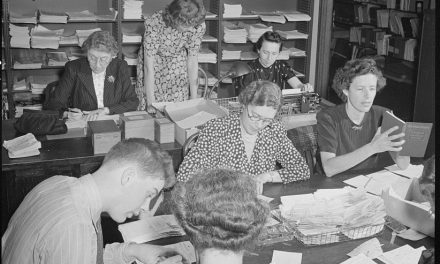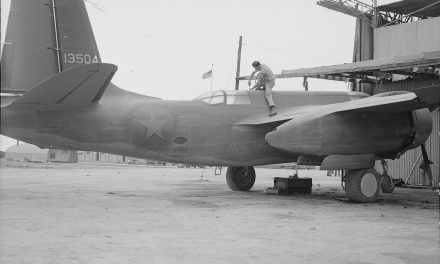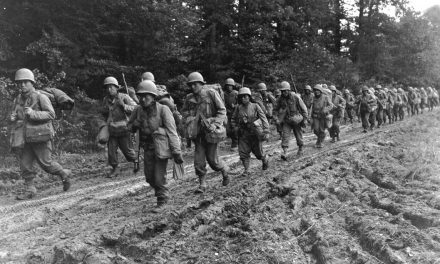“Girls, you know what’s happening?” the night nurse asked as a bewildered huddle of her co-workers greeted her outside their quarters. “The island of Oahu has been attacked by the enemy, Japan.”
“Shut up,” Nurse Kathryn Doody retorted. She and her colleagues heard strange, booming noises outside their rooms all morning and saw antiaircraft smoke in the sky over Honolulu. Seemingly everyone had a theory for what was happening on the morning of Dec. 7, 1941, but Doody knew this particular nurse had a habit of telling stories.
Soon the group gathered around a radio to hear the news confirmed. The Japanese led an attack on the U.S. A haunting thought crept into Doody’s mind at that moment.
“That means war,” she said to herself. “What’s war going to be like?”
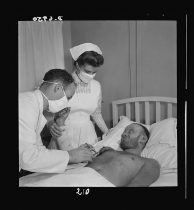
Mary Doody gained much of her nursing experience during the events of Pearl Harbor. Photo by Fritz Henle, from Library of Congress.
After completing her training to become a registered nurse in 1937, Doody had dreams of travelling the world. While working at the U.S. Army’s Walter Reed General Hospital in June 1940, the opportunity came for her to sign up and work in Honolulu, Hawaii, at Tripler Army Hospital.
Despite her goal of travelling the world, she had listened to the advice of one of the doctors she met while training to be a nurse in Salisbury, Md.
“On your first trip away from home, always have the amount of money in your pocket to return home because you’re going to get homesick and run home as soon as you do,” he told her.
Because of this, Doody elected never to move far from her home in Eaton, Md.
However, while the prospect of missing her family originally kept her from travelling, the opportunity to see Hawaii reignited her passion.
Now, on the morning of the attack on Pearl Harbor, her passion for nursing outshined all of her other ambitions. As death and destruction mounted around her, she found herself too preoccupied to grasp the enormity of the situation.
She was on call that day and was asked to be the in the operating room to assist in an amputation. In route to the operating room, Doody had to venture outside, ducking and running as a storm of bullets and shrapnel rained down near the hospital.
When she entered the room, she found it overrun with men on stretchers, bloodied from various injuries. The patient she attended had a fracture above the knee that necessitated the amputation. In her training, she had never amputated a limb larger than a toe or finger and the potential horror of this experience affected her deeply.
“The sound of sawing bone, I don’t think I can stand, so I’m going to faint,” she said to herself. However, the procedure was done by the time she turned around. The wound was so deep that the injured portion of the limb detached with just a snip of shears.
At the end of the day, she entered the darkness of the nurses’ quarters that were under an enforced blackout. She groped around for the water fountain that would signify when she was near her room at the far end of the building. Unable to sleep, she crawled into bed next to another nurse and went over what happened during the day.
Doody rose the next morning and was greeted once again the sight of death.
“Some of [the soldiers], during the night, had released the tourniquets they had on so they would die,” she said. “They didn’t want to live with whatever wound they had received.”
Doody acknowledged that the island would have lost many more lives if it had not been for the fact that a number of medical professionals arrived on the island before the attack. In a seemingly eerie coincidence, they came to attend a discussion on surgical trauma set for the same day as the Japanese invasion.
“They were excellent people,” Doody said of the doctors she met that day. “It was just great to work with them.”
Doody gained such an incredible wealth of experience in the wake of the tragedy that U.S. officials considered her and some of the people she served beside to be “seasoned troops.” Because of this, in 1942, she was asked to travel to Europe and aid troops there. While she grappled with the idea, initially unwilling to leave her colleagues and friends in Hawaii, she ultimately decided to go because it would make her family proud.
With that, she began her 45-day leave to prepare for her departure. On the train ride back to Maryland, she had a chance encounter that would change the course of her career. She sat next to an officer who served in a military unit in Honolulu. The conversation the two of them had left an impact on the soldier.
While Doody was still home doing work at Norfolk Naval Hospital, she received a call from him in which he explained that he was going to be commanding officer of the field hospital in Europe. He wanted Doody to join him as his chief nurse.
Even though Doody wanted to go, she had no interest in the high-level position.
“You don’t have to make me a chief nurse, just take me with you and I’ll be a nurse,” she told him.
Despite her initial objection, the soldier persisted, going to the surgeon general’s office to file his request. Doody complied with the request and later found herself in training at Ft. Jackson, North Carolina before shipping off to Great Britain.
The training was meant for the field hospital crew to get to know each other and, while there, the soldier let Doody know that she would have to prove herself as a skilled nurse.
“I want to let you know, you were one of two nurses that I knew back here in the States,” he said. The other nurse is on the west coast, and I knew I wouldn’t have a chance to get her.”
Today, Doody can be found living with a civilian family in Britain. While she has not heard any bombs in the distance and said that she lives in relative comfort, the dangers of war are not far from her mind.
She does not know when she will leave for Germany. She only knows she has to be prepared.
Source: Kathryn Mary Doody Collection, Veterans History Project, American Folklife Center, Library of Congress.

